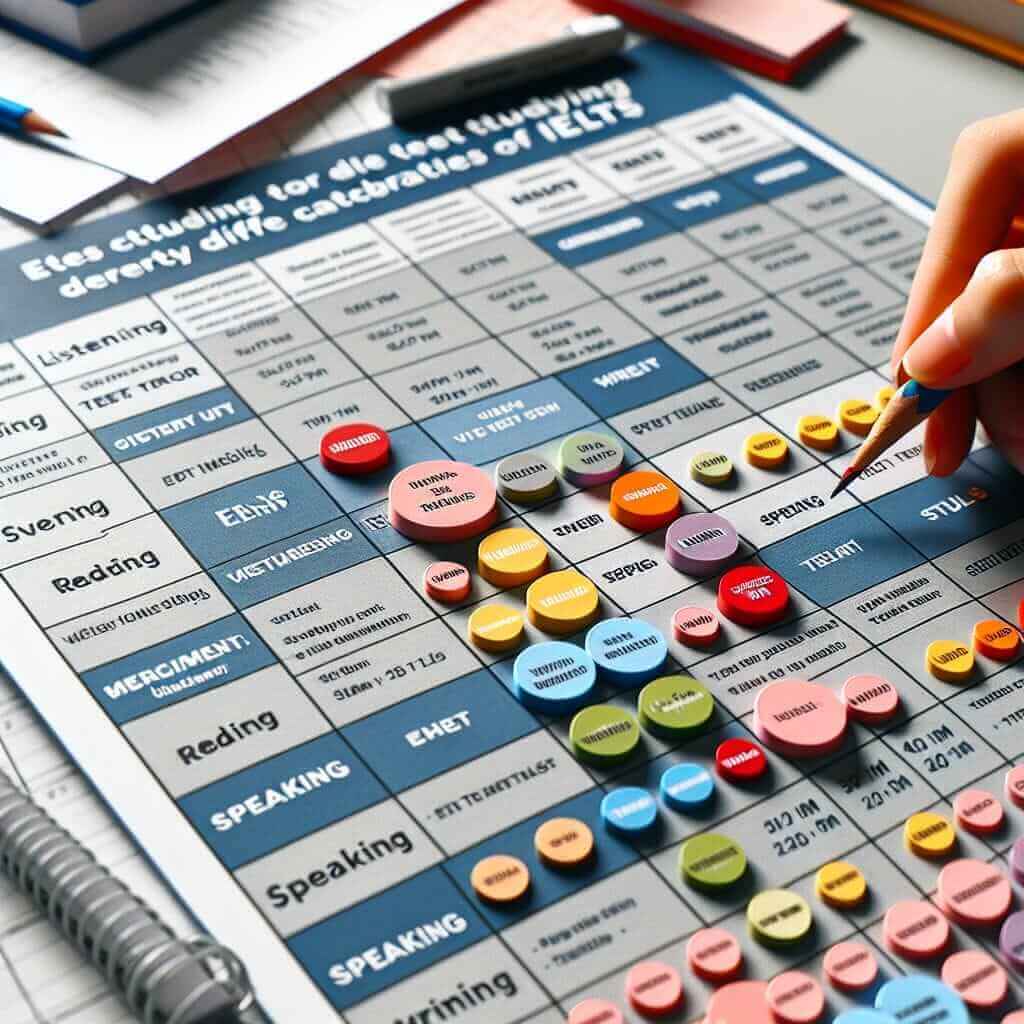Passing the IELTS test is a significant milestone for anyone aiming to study, work, or migrate to an English-speaking country. With over two decades of experience teaching IELTS, I’ve witnessed firsthand the transformative power of effective preparation. This comprehensive guide will delve into proven strategies and insights to empower you on your path to IELTS success.
Understanding the IELTS Test
What is IELTS?
The International English Language Testing System (IELTS) is a globally recognized test that assesses your proficiency in the English language across four key skills:
- Listening: This section evaluates your ability to understand spoken English in various contexts, such as lectures, conversations, and announcements.
- Reading: You’ll be tested on your comprehension of academic and general interest texts, focusing on aspects like main ideas, details, and inferences.
- Writing: This section measures your ability to express ideas coherently and effectively in writing, covering tasks like essay writing and report writing.
- Speaking: You’ll engage in a face-to-face interview with a certified examiner to assess your fluency, vocabulary, grammar, and pronunciation.
Why is IELTS Preparation Crucial?
- Familiarity with Test Format: Understanding the structure, timing, and question types of each IELTS section is essential to avoid surprises on test day.
- Strategic Time Management: IELTS tests your ability to perform under time constraints. Effective preparation helps you develop time management strategies for each section.
- Enhanced Language Skills: Targeted practice improves your overall English language proficiency, encompassing vocabulary, grammar, pronunciation, and communication skills.
- Increased Confidence: Thorough preparation instills confidence, reduces test anxiety, and allows you to perform at your best.
Effective IELTS Preparation Strategies
1. Start with a Practice Test
Before embarking on your preparation journey, take a full-length IELTS practice test. This will provide valuable insights into your current strengths and areas that require improvement, allowing you to tailor your study plan accordingly.
2. Focus on Your Weaknesses
Based on your practice test results, identify your areas of weakness. Allocate more study time to these areas while consistently reviewing and reinforcing your strengths.
3. Immerse Yourself in English
Surround yourself with the English language as much as possible. Watch English movies and TV shows, listen to English podcasts and music, and read English books and articles. This immersion will naturally enhance your vocabulary, listening comprehension, and pronunciation.
4. Develop a Consistent Study Schedule
Consistency is key to effective IELTS preparation. Create a realistic study schedule that fits into your daily routine and commit to it. Allocate specific time slots for each skill area.

5. Utilize Quality IELTS Preparation Materials
Invest in reputable IELTS preparation books, online resources, and practice tests. These materials provide structured learning, practice exercises, and valuable tips from experienced IELTS instructors.
IELTS Speaking Test Preparation
Understanding the Speaking Test Format
The IELTS Speaking test is a 11-14 minute interview divided into three parts:
- Part 1: Introduction & Interview: You’ll answer general questions about yourself, your interests, and familiar topics.
- Part 2: Individual Long Turn: You’ll receive a cue card with a topic and will have one minute to prepare a 1-2 minute speech.
- Part 3: Two-Way Discussion: You’ll engage in a deeper discussion with the examiner based on the topic in Part 2.
Effective Speaking Test Strategies
- Practice Regularly: Engage in regular speaking practice with a language partner, tutor, or by recording yourself.
- Expand Your Vocabulary: Learn and practice using a wide range of vocabulary related to common IELTS topics.
- Focus on Fluency and Coherence: Speak naturally and connect your ideas smoothly using linking words and phrases.
- Pay Attention to Pronunciation: Work on clear and accurate pronunciation, paying attention to individual sounds and word stress.
- Be Confident and Engaging: Maintain eye contact, use appropriate gestures, and demonstrate enthusiasm throughout the interview.
Conclusion
Achieving your desired IELTS score is an attainable goal with dedicated effort and a strategic approach. Remember to focus on your weaknesses, practice consistently, and utilize quality preparation materials. Your journey towards IELTS success starts with a single step.